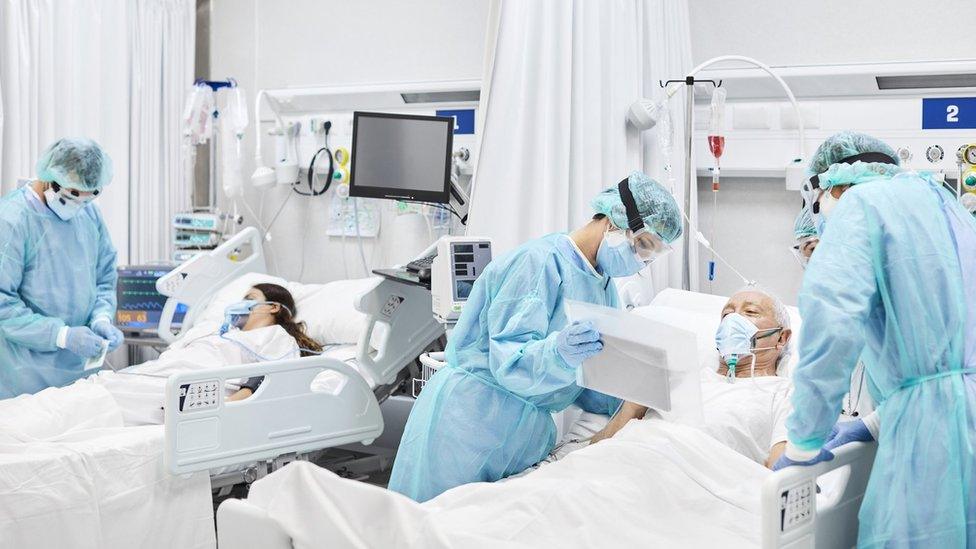Tocilizumab: Arthritis drug may treat severe Covid
- Published

The rheumatoid arthritis drugs tocilizumab appears to treat people who are critically ill with Covid-19, early trial data shows.
The researchers in the UK and the Netherlands said it was "an absolutely amazing result".
The drug is no longer being trialled as the researchers are so confident in the data, but the precise effect on survival is still being calculated.
Other experts have urged caution until the full data is released.
Tocilizumab targets the immune system, which goes into overdrive in some patients with coronavirus. It is this reaction, rather than the virus itself, which can be deadly.
The trial was run by Imperial College London, the UK's Intensive Care National Audit and Research Centre, and Utrecht University. It focused on the most severely ill patients, who needed to be put on a ventilator.
Trials of the drug were stopped two days ago as independent monitors said there was enough evidence, from the first 303 patients, to show it was working.
However, interpreting the results is complex.
They show an improvement in "outcomes", but this is a statistical conflation of other measures such as survival rates and time in intensive care. Doctors know the drug is doing something, but it will take time to know whether it is saving lives or just speeding up recovery.
"We don't know that yet, we are hopeful it does both," said Prof Anthony Gordon from Imperial.
However, he said it was "very encouraging", a "big result", and that tocilizumab could "become the standard of care".
It will still take weeks to properly assess the data, which has not yet been formally published.
The treatment costs between £500 and £1,000 and is given intravenously.
'Amazing result'
Steroids, including dexamethasone, are the only drugs proven to be save lives from Covid-19 and they tend to calm the whole of the immune system. Tocilizumab targets specific parts within that complex system.
The researchers hope they have found another.
Dr Lennie Derde, an intensive care consultant at the University Medical Center in Utrecht, said: "This is an absolutely amazing result.
"To have a second effective therapy for critically ill patients within months of the start of the pandemic is unprecedented."
However, other experts have urged caution until the final results are analysed, as previous studies have given a mixed picture.
Prof Peter Horby, who was part of the team at the University of Oxford that showed dexamethasone was protective, said: "This is an encouraging result which suggests that other, more targeted, anti-inflammatory drugs may also help.
"The results so far on tocilizumab have been mixed, with four randomised controlled trials having reported results, of which two were negative and two were positive... I eagerly look forward to seeing the full results."
Follow James on Twitter, external